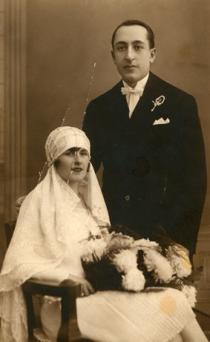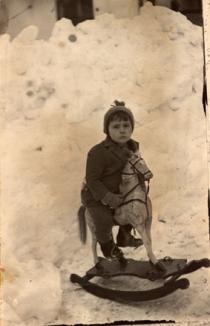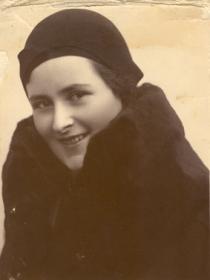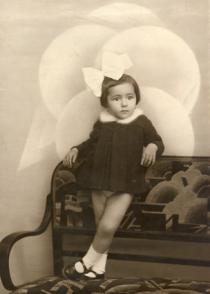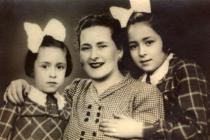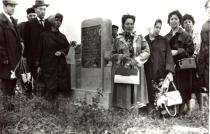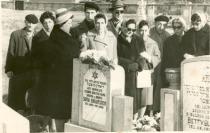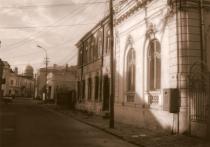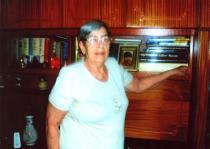This photograph was taken on my parents' wedding day. It was taken at Zalevsky photo cabinet on 6th January 1929.
I can’t remember whether it was located on Regala St. or also on Galati St. I see that it says on the back of the photo: "For the Goldsteins - We offer you this photograph to remember our marriage by."
The Goldsteins, to whom this photograph is addressed, were a family whom my parents befriended.
My parents' marriage wasn't arranged since they met here for the first time, in Braila. My maternal grandparents had been living here since the occupation of Dobrogea, when the Bulgarians came.
However, my paternal grandparents remained in Sapanta. My father had left Sapanta and went to the Regat [Kingdom] when he was in his 20s, around 1923.
[Ed. note: 'Kingdom' was used by Transylvanians in everyday speech when referring to the Romanian Kingdom, before the unification of 1918.
It remained in use after the unification, designating the regions of Moldavia and Wallachia that had formerly composed the Romanian Kingdom].
My mother was very young when she married, she was 20-21 in 1929, and they only married religiously. Back then, the engagement was held at the synagogue, too.
They also gave out invitations for the marriage ceremony and party. They married on the day of the Epiphany, on 6th January 1927.
My parents had a wedding celebration when they married. My mother was a beautiful bride, you could swear she was right out of Hollywood, she had a very nice wedding attire.
She wore a short dress and she was a splendor to look at. Wedding dresses were custom-made to suit the taste of each bride. They were sewn by dressmakers.
A Jewish ritual was performed at weddings. I didn't marry religiously and I have no idea in which way it is different from other rituals.
In any case, in our tradition, it is the parents who are usually the godfathers, the parents of the groom and of the bride.
My mother was a sworn atheist. My father was a very religious Orthodox Jew. When his parents came to meet my mother and found out she wasn't a zealot, they didn't really want my father to marry her, but then they thought that she was young and that any offshoot can be converted. But the exact opposite happened, for it was my father who swayed.
When he came to Braila, my father was a religious person, and my mother changed him completely.
My father attended religious schools in Austria-Hungary, for Jews had such schools back then, just as they do nowadays in Israel.
Here, in Braila, the custom was to attend the synagogue on holidays; the men remained on the ground floor and the women went upstairs, and my father would accompany my grandmother to the synagogue because I believe my mother never set foot inside the synagogue after the wedding.

